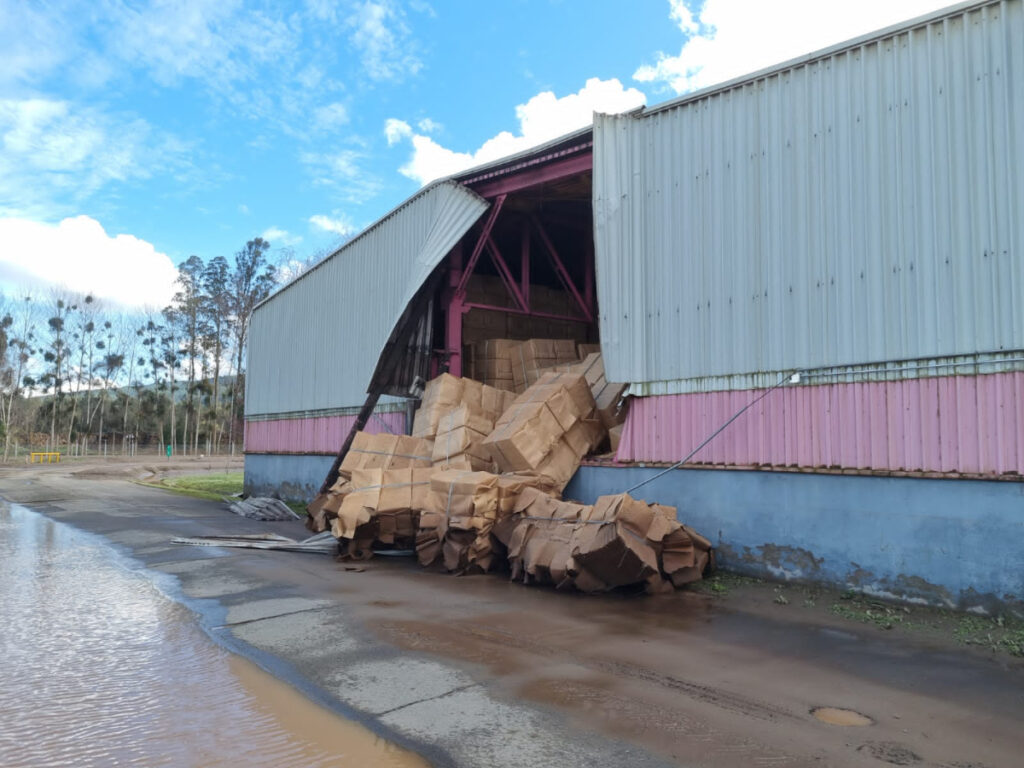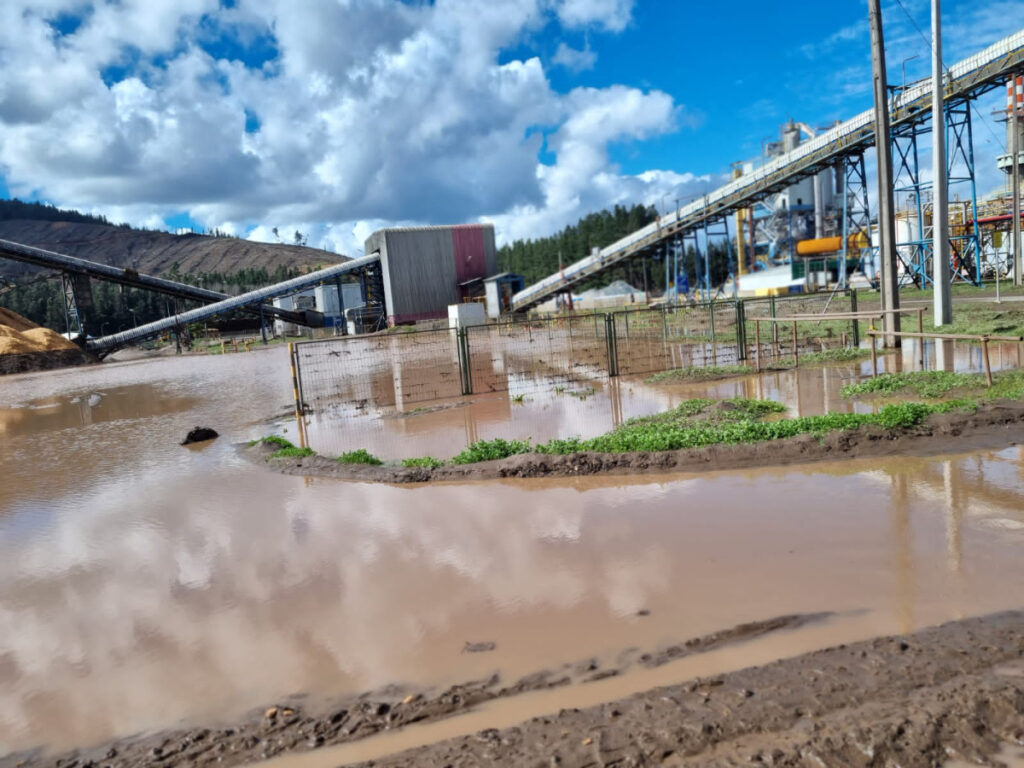Arauco has indefinitely suspended cellulose production at its Licantén plant in the Maule region due to climate-related challenges. This decision, communicated via a press release and a report to the Financial Market Commission (CMF), is prompted by extreme climate variations, floods, droughts, forest fires, and a lack of reforestation policies. Local authorities are aware, and the company is informing employees and contractors while planning plant maintenance.
Citing climate crisis-related reasons, Arauco has announced the indefinite suspension of cellulose production at the Licancel plant located in the Licantén commune, in the chilean Maule region.
This decision was communicated through a press release and a report submitted to the Financial Market Commission (CMF). The company attributed the closure to a confluence of challenges the plant has grappled with, particularly in recent times.
Arauco also released a video in which the plant can be seen completely flooded amid the rains that have been affecting many regions of the country.
“Extreme climatic variability, with consecutive floods of the Mataquito River during this winter, periods of severe drought that caused repeated shutdowns in plant operations in previous summers, and high-impact forest fires” were among the reasons cited.
In addition to these factors, “the absence of a public policy promoting reforestation over the last decade has led to a low availability of wood for industrial use.”
Impact on local economy and employee transition plans
Arauco has also communicated this news to the 163 employees at the Licancel plant, along with contractors. The company has devised an exit plan to minimize the impact on their lives and families, according to their administration.
Local authorities are already aware of the economic implications for the Maule region.
During the upcoming weeks, the company will undertake cleaning and equipment maintenance at the plant, which has an installed annual production capacity of approximately 160,000 tons of raw pine cellulose. This represents 3% of Arauco’s total annual cellulose production capacity and 1.7% of the company’s total revenues for the year 2022.
In it’s report submitted to the CMF, the company detailed that the Licancel facilities were constructed in 1992. In 1999, when Arauco acquired them, it paid $104 million to the Swiss company Attizhold Holding.
Arauco acknowledged the consequences that the indefinite closure of the plant will bring in the 2023 fiscal year, including a net deferred tax impact of approximately $55 million.














